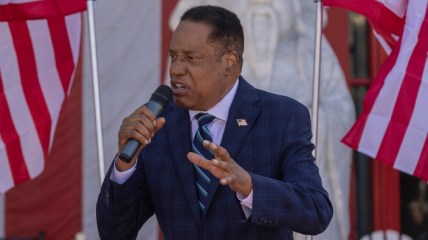LAPD officers instructed to collect social media accounts of civilians they encounter
"Social media accounts" was added to LAPD field interview cards — for both suspects and those not arrested — in 2015.
A new report is revealing that officers from the Los Angeles Police Department were instructed to collect social media data from every civilian that they interviewed — including those who were not arrested or even accused of a crime.
The non-profit Brennan Center for Justice obtained thousands of documents through a California Public Records Act, and their report features copies of “field interview cards” that asked for Facebook, Twitter and Instagram account names.

The Guardian interviewed Rachel Levinson-Waldman, a deputy director at the New York City-based center, who contends the information has likely been stored in police databases. “There are real dangers about police having all of this social media identifying information at their fingertips,” she said.
The line “social media accounts” was added to field interview cards in 2015. A memo from former LAPD Chief Charlie Beck released to the Brennan Center noted that “similar to a nickname or an alias, a person’s online persona or identity used for social media … can be highly beneficial to investigations.”
An article from the summer of 2020 by The Los Angeles Times detailed the activities of the Metropolitan Division of the LAPD, a gang-focused unit. The Times found that the unit, which is only 4% of the department, turned in more than 20% of the department’s field interview cards.
Additionally, the unit was scrutinized for falsifying information on the cards.
Former California Attorney General Xavier Becerra, who is now America’s Health and Human Services secretary, launched an investigation last year into the LAPD’s use of the database where information from the cards are stored.
A 2019 Times article reported that a disproportionate number of cars the Metro unit pulled over were driven by African Americans. At the time, LAPD had pulled over nearly 30% Blacks, despite the fact that the city is only 9% Black.
Peter Bibring, an attorney at the ACLU of Southern California, said, “The concern with law enforcement databases is they provide a starting universe for police to conduct an investigation. If an officer is looking for suspects, and a crime is committed in a particular area, they may not know every person that lives in that the area, but they can call up all the FI cards.”
Have you subscribed to theGrio’s “Dear Culture” podcast? Download our newest episodes now!
TheGrio is now on Apple TV, Amazon Fire and Roku. Download theGrio.com today!

